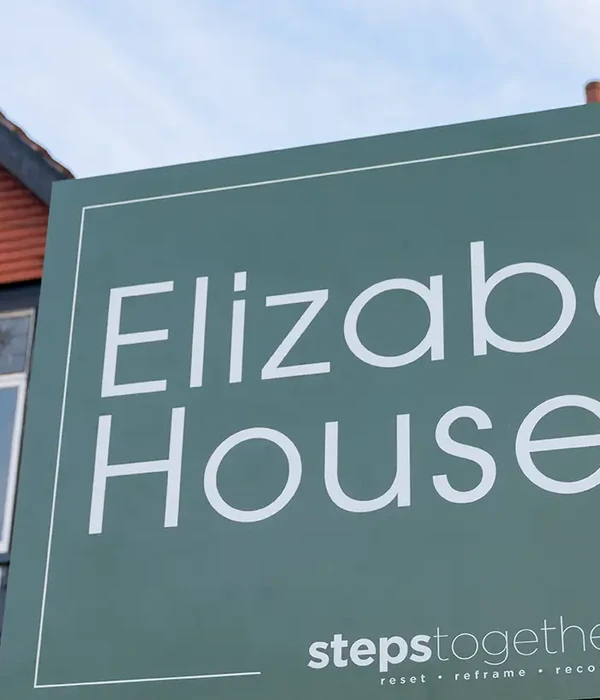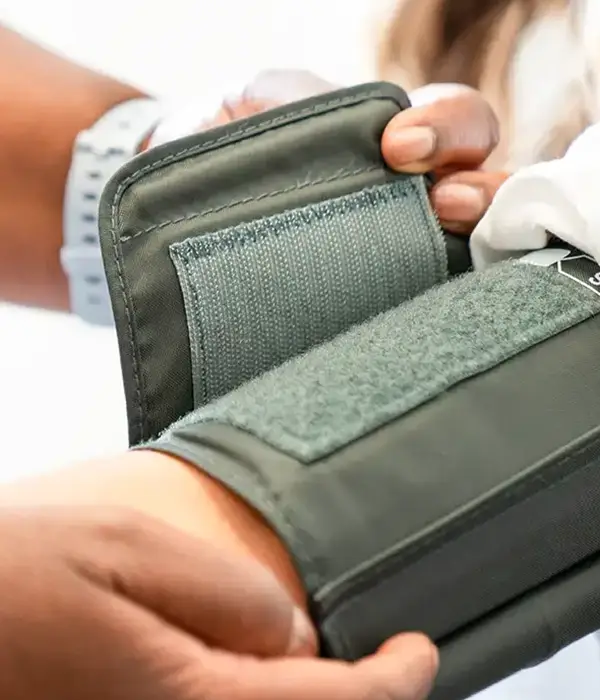Internet Addiction Treatment
Struggling to control your time online can affect your health, relationships, and daily life. Internet addiction treatment, such as methods like therapy and support, can help you regain a healthier balance. Many people find that recognising the signs early and taking action can make a real difference.
Treatment often includes therapy and other approaches to help you change your habits and thoughts around internet use. You may also want to consider group support or explore alternative ways to manage stress without relying on screens. Learning about the different options can help you choose what works best for you.

Take the First Step Towards Recovery
Steps Together offers personalised support and proven treatments, providing the care, guidance and encouragement you need to move forward with confidence and build a healthier future.

Understanding Internet Addiction
Internet addiction, also called internet addiction disorder, means you struggle to control your use of the internet even when it leads to problems in daily life. It belongs to a group of behavioural addictions, like gambling or gaming, where the focus shifts away from substances to actions that give a sense of reward.
Internet addiction is a behavioural issue that affects many people across the world. The condition is characterised by specific signs, symptoms, risk factors, and causes that distinguish it from casual or responsible internet use.
Signs and Symptoms of Internet Addiction
Internet addiction does not always have official diagnostic criteria, but experts often look for clear patterns of behaviour. Key signs include a preoccupation with online activities, unsuccessful attempts to limit time spent online, and using the internet to escape from stressful feelings or problems.
The symptoms of internet addiction include lying about the amount of time spent online or neglecting responsibilities. Physical health can be affected, leading to eye strain, headaches, or disturbed sleep. You may also have mental withdrawal symptoms such as anxiety or depression when you’re unable to use the internet.


What Causes Internet Addiction?
Stress, loneliness, existing mental health issues, and easy access to the internet are all linked to higher risk. Young people, especially teenagers, are more likely to be affected, but adults can also develop problems. Living in a home with a lot of technology or lacking other hobbies can make developing internet addiction easier.
Causes can include underlying mental health conditions like anxiety or depression. Escaping real-life problems through excessive internet use can quickly become a way to cope. Often, a combination of personal, social, and environmental factors contributes to the development of this behavioural addiction.
Treatment for Internet Addiction
A range of options can be used in a rehab programme for internet addiction. Different therapies and support methods can help you reduce unhealthy online habits, improve your relationships, and address any other problems that may exist alongside your internet use. Internet addiction treatment options can include:
Cognitive Behavioural Therapy (CBT)
Cognitive behavioural therapy is one of the principal treatment programmes for internet addiction. It focuses on helping you notice and change negative thoughts and behaviours that lead to excessive internet use.
CBT often includes identifying triggers, setting boundaries, and learning healthier coping skills. You may want to work on time management and replace internet use with other activities. The process also encourages you to recognise distorted thinking.
Family Therapy
Family therapy addresses the impact of internet addiction on your family life and relationships. Excessive online activity can lead to misunderstandings, conflict, or a breakdown in communication within your home. In family therapy, you and your loved ones learn how to establish healthy boundaries and communicate openly about your concerns.
This therapy often explores what roles family members play in enabling or discouraging unhealthy internet habits. The aim is to build understanding and support among all family members. You may work on improving respect, trust, and routines at home.
Group Therapy and Support Groups
Group therapy and support groups are common in internet addiction treatment and can help you feel less isolated. In a group setting, you meet others who are experiencing similar struggles, providing mutual encouragement and accountability.
These settings provide a safe space to discuss your internet habits and learn from others’ experiences. Sharing strategies and successes can be motivating and can help you develop healthier patterns.
Medication for Co-occurring Disorders
Some people with internet addiction have other mental health issues, such as anxiety, depression, or ADHD. In these cases, medication may be used as part of your internet rehab. Addressing co-occurring disorders along with the addiction may help reduce your urge to use the internet, as symptoms like low mood or anxiety often trigger online overuse.
Medications such as antidepressants or anti-anxiety drugs can be prescribed if appropriate. However, medication is not a cure for internet addiction itself; it mainly targets co-occurring conditions that make the addiction harder to manage.
Services that our multi-speciality addiction rehabilitation centres offer
Love and Relationship Addiction Treatment
Love and Relationship Addiction Treatment

Establishing Healthy Online Habits
Building a healthier relationship with the internet starts with setting clear intentions. Decide on a purpose before going online ( this can be answering emails, reading the news, or completing work tasks) and avoid falling into endless browsing.
Creating device-free zones in your home can also make a big difference. Keep phones and laptops out of your bedroom to protect your sleep, and set aside areas like the dining table for offline connection with family or friends.
Time limits are another practical step. Use built-in screen time trackers or set alarms to remind yourself when it’s time to log off. These boundaries help prevent hours from slipping away unnoticed.
Finally, track your online habits just as you would track exercise or nutrition. Writing down goals and progress each week keeps you accountable and helps you notice patterns that may need adjusting. These small steps can slowly reduce dependency and bring balance back to your internet use.

Common Types of Internet Addiction
Social media addiction is one of the most widespread types of internet addiction. You may find yourself spending hours scrolling through platforms like Instagram, Facebook, or TikTok. This habit can start with staying in touch with friends, but often grows into a constant need to check notifications, likes, or comments.
Online gaming addiction is a growing concern, especially among young people. Games are designed to be engaging, offering rewards and challenges that can keep you playing for hours. You may develop routines where you want to play just one more level or win another match, but end up sacrificing sleep, meals, or time with friends.
Gambling addiction does not only happen in casinos. Online gambling sites are available day and night, which makes it easy to fall into risky patterns. You may start by simply placing a bet, but find yourself spending more money and time on these sites than you had planned.
Effects of Internet Addiction
Spending too much time online can cause problems with your health, mood, and relationships. The negative outcomes extend beyond simply losing track of time; they can significantly impact how you feel and act each day.
Physical and Mental Health Impacts
Excessive internet use can lead to both physical and mental health problems. You may experience headaches, eye strain, or sore muscles from prolonged sitting. Over time, you could develop risk for issues such as carpal tunnel syndrome or back pain from poor posture.
Your sleep may suffer if you stay online late at night. Poor sleep raises stress and makes it harder to focus during the day. Using the internet too much can also make you feel lonely, which puts you further at risk of depression and other mental health issues.
Co-occurring Disorders and Mental Illness
It is common for internet addiction to happen alongside other mental health problems. You may experience high levels of anxiety or depression, which can make excessive internet use worse. This cycle makes it more challenging to improve without proper support.
Some people develop compulsive behaviours, such as checking social media or playing online games for many hours. Over time, these patterns become harder to break. Co-occurring disorders can include other addictions or mental illnesses, making treatment more complicated and recovery slower.
Negative Consequences in Daily Life
When time spent on the internet becomes the main priority, daily life is often disrupted. You may skip meals, exercise, or hobbies because you do not want to step away from your device. School or work performance can suffer as you struggle to complete tasks on time or maintain focus.
Isolation becomes a problem if you neglect friends and family. Lack of social interaction can weaken relationships. Some people may even neglect their daily responsibilities, which can lead to a lower quality of life.

Internet Addiction Rehab Can Help You
You’d have a hard time finding anyone who doesn’t use the internet to some extent in their lives. The internet can be an incredibly valuable tool in day-to-day life, but some people can lose control over their use and develop an unbalanced relationship with it.
Our internet addiction treatment can help you or your loved one find a way past this behavioural addiction. The internet is virtually omnipresent in modern society, but it doesn’t have to be present in all facets of your life.
Frequently Asked Questions
What are effective strategies to overcome online dependency?
You can set regular limits on your internet use and create routines that include offline activities. Prioritising real-life relationships and hobbies helps break the cycle of constant online engagement. Some people keep devices out of bedrooms or use apps that manage screen time.
Are there any specific medications prescribed for overcoming cyber addictions?
Currently, there are no specific medications approved just for internet addiction. In some cases, doctors might prescribe medicine to manage symptoms like anxiety or depression if they are present alongside internet addiction. Medication is usually not the first treatment, but may support other therapies when needed.
How does cognitive behavioural therapy address excessive use of digital devices?
Cognitive-behavioural therapy targets the thoughts and behaviours leading to excessive internet use. Therapists work with you to identify triggers, challenge unhelpful thoughts, and develop new, healthier habits. This approach is commonly used and has shown positive results for those struggling with online addiction.
Can professional counselling help in treating screen-related compulsions?
Yes, professional counselling has been shown to help people with screen-related issues. Counsellors use talk therapies to help you understand why you overuse digital devices and teach techniques to reduce harmful patterns. Professionals often recommend cognitive-behavioural therapy (CBT) for this purpose.
What role does family support play in managing compulsive internet use?
Family support is important for recovery. Positive encouragement and understanding from your family can help you stick with changes in your routine. Open conversations, setting boundaries together, and jointly participating in offline activities often lead to better outcomes.
What lifestyle changes contribute to reducing dependence on virtual environments?
Adding more outdoor activities, exercise, and social events can fill time once spent online. Maintaining a daily schedule and setting aside device-free periods helps promote balance. These changes help you develop healthier routines and make it easier to avoid compulsive internet use.





